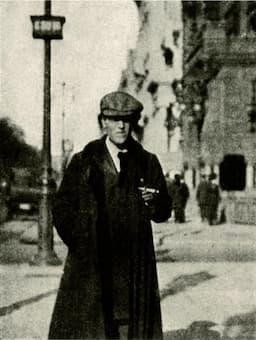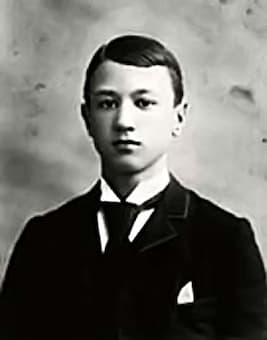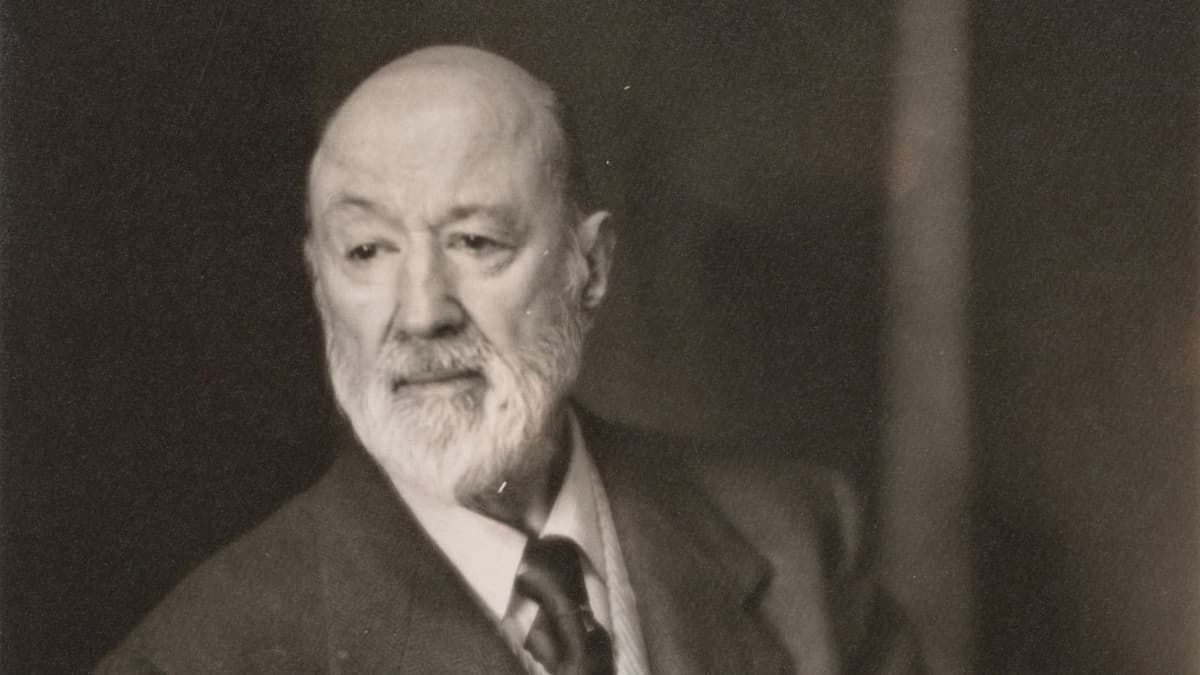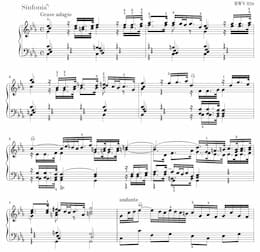This has to be one of the most tantalising ‘What Ifs’ in musical history. In 1911, at the end of his tenure with the New York Philharmonic and only months before his death, Gustav Mahler visited the office of Tams copying shop in New York. He happened to notice the score of Ives’s Symphony No. 3, which had just been completed. Intrigued, Mahler took a copy back with him to Europe, intending to conduct the premiere. This would have been a spectacular break for Ives. Most of his music had never been performed – and seldom was until decades later.
Charles Ives: Symphony No. 3, “The Camp Meeting” – I. Old Folks Gatherin’ (Royal Concertgebouw Orchestra; Michael Tilson Thomas, cond.)

Gustav Mahler in New York
The source of this story is Ives himself, who while certainly honest is not always reliable. In David Wooldridge’s 1974 biography of Ives, there is also an incredible account of Mahler conducting a reading of the Third Symphony in Munich. Wooldridge’s source was a retired timpanist who, over four decades later, claimed to have played the final bell part in the performance. I doubt we’ll ever know the truth. There is no hard evidence available: Mahler’s supposed copy of the score is either lost or non-existent. All we have are memories recalled decades later. We like to think our memories are reliable and truthful, but remembering is not like a computer searching its hard drive for an archived file; it is an imaginative act that brings together fragments of experience. And so we seldom remember long-ago events as they literally happened (if they indeed did happen).
Inveterate daydreamer that I am, I’ve sometimes wondered what would have happened had Mahler premiered the work in 1911 (despite his ill health) and perhaps even championed Ives as he did Schoenberg. Whichever way I look at it, I never see it ending well for Ives’s music. It may have pushed Ives back onto the path of a professional composer, which might have in turn de-fanged his music. He chose the role of a musical outsider as much as it was forced upon him. When in 1902 his conservative and rather uninteresting cantata The Celestial Country was premiered, he expressed his contempt by scrawling ‘damn rot and worse’ across one of the more favourable reviews. ‘The way I’m constituted,’ Ives later wrote in his Memos, ‘[means] writing soft stuff makes me sore.’ Two weeks after the premiere of The Celestial Country, Ives quit his job as organist at the Central Presbyterian Church in New York City, which he had held for two years. A door to a professional life in music had opened before him, but his temperament was such that he could not walk through. Too much compromise would have been asked of him.
Charles Ives: The Celestial Country (Dan Dressen, tenor; Michael Jorgensen, baritone; St. Olaf Choir; St. Olaf Chamber Ensemble; Anton Armstrong, cond.)

Charles Ives, 1889
From then on, he pursued a career in life insurance instead. Ives was a maverick in business as well as in music – but it proved less of a problem for him in business. Ives somehow managed to reconcile his intense idealism to this morally questionable industry. In fact, his combination of New England, Christian progressivism – his influential how-to-sell pamphlet is full of sociological and metaphysical reflections – with shrewd economic sense was so successful that Ives become one of the most significant men in the world of life insurance. He retired a very wealthy man, and he used his wealth not only to promote and circulate his own scores but also the works of many new composers.
Even though Ives’s music was seldom performed (most of his colleagues in life insurance had no idea he was also a composer), he still occasionally received criticism and it could severely disorientate him. Ives was throughout his life remarkably sensitive to criticism of all kinds. In 1914 Ives got a world-class violinist to test out his Second Violin Sonata. The violinist didn’t even make it through the first page. The ‘professor’, as Ives referred to him, put his hands over his ears and said, ‘When you get awfully indigestible food in your stomach that distresses you, you can get rid of it, but I cannot get those horrible sounds out of my ears!’ Ives submerged himself in doubt. It was when reflecting on this moment that Ives came out with one of his most famous lines: ‘Are my ears on wrong?’
Charles Ives: Violin Sonata No. 2 (Hilary Hahn, violin; Valentina Lisitsa, piano)
The next violin sonata he wrote was a musical compromise that he later regretted. ‘The themes are well enough,’ Ives wrote, ‘but there is an attempt to please the soft ears and be good. The sonata on the whole is a weak sister. But these depressions didn’t last long, I’m glad to say. I began to feel more and more, after séances with nice musicians, that, if I wanted to write music that, to me, seemed worthwhile, I must keep away from musicians.’
Now imagine how Ives would have reacted to the unprecedented scrutiny of a premiere conducted by Mahler? Moreover, the premiere would have occurred during the most fruitful periods of his composing life, beginning 1907-1908 with his first health scare and, a year later, his marriage to Harmony Twitchell. This creative outburst lasted about a decade. The fictional Mahler premiere would have occurred before most of Symphony No. 4, Concord Sonata, and Three Places in New England had been composed – among his best works. Who knows if these would still have been written, or how differently they might have turned out? Anyone who has read or seen a time-travel story knows that these things never go to plan.

Charles Ives © www.dallassymphony.org
Symphony No.3 ‘The Camp Meeting’ was eventually performed in Ives’s lifetime, though not until 1946 – three and a half decades after Mahler took some kind of interest in the score. By this time Ives had long since stopped writing music: years spent co-running an insurance company and then composing late into the night seems to have worn away his health and creative energy until very little was left. A year after its premiere, the symphony won the Pulitzer Prize for musical composition. Characteristically, Ives gave the $500 prize money to two of his composer-friends, John Becker and Lou Harrison (and also donated another ‘half’ to the publication New Music, for a net loss of $250). Ives was dismissive about the prize, as he was about all composition prizes. Yet he hung the certificate on his wall. Quietly, he was proud.
Charles Ives: Symphony No. 3, “The Camp Meeting” – II. Children’s Day (Royal Concertgebouw Orchestra; Michael Tilson Thomas, cond.)
The Third Symphony is an Ives piece unlike any other. Compact and approachable, it is a waypoint between the oddball-but-quite-traditional Second Symphony and the ambitious, cosmological, wonderfully strange Fourth Symphony. I’m tempted to say it is the Ives symphony for people who don’t like Ives – but also beloved, I hasten to add, by many of us who do.
For more of the best in classical music, sign up for our E-Newsletter
Steven Watson is a classical guitarist, composer and writer in the United Kingdom.
Charles Ives: Symphony No. 3, “The Camp Meeting” – III. Communion (Royal Concertgebouw Orchestra; Michael Tilson Thomas, cond.)


I love this blog. What if one musical door had opened and not another.
Having had the pleasure of listening to Ives 4 in Teatro Colon in Buenos Aires I would not dare any musical history that risked this cosmic piece. For the first time in a classical concert I found myself silently weeping. A great force of energy and understanding is unleashed in this fantastic work.
Thanks Deborah — I’ve only just seen your comment. A beautiful testament to the power of Ives 4. I’ve not been able to hear it live myself, but I experienced similar feelings at a performance of the Holiday Symphony, particularly in the last movement with its divine simplicity in the middle, then as it builds to that great, magnificent chorus.
Unfortunately, the actual chronology of Mahler’s return to Europe in the spring of 1911 makes Ives’ account most unlikely. Between January & February, 1911, Mahler suffered a fatal streptococcal infection. His last concert was on 21 February of that year and, having received the sentence of death from his doctors, Mahler returned to Europe in April and died the next month. Because he knew he was a doomed man before leaving New York, it seems highly unlikely that he would take an unfamiliar score back with him with the intention of possibly conducting it in the future.
That said, Mahler did take an active interest in the contemporary music of his time. He supported Schoenberg’s nascent move to atonal compositions and conducted the American premiere of Rachmaninoff’s Third Piano Concerto in 1909 when it was hot off the press.